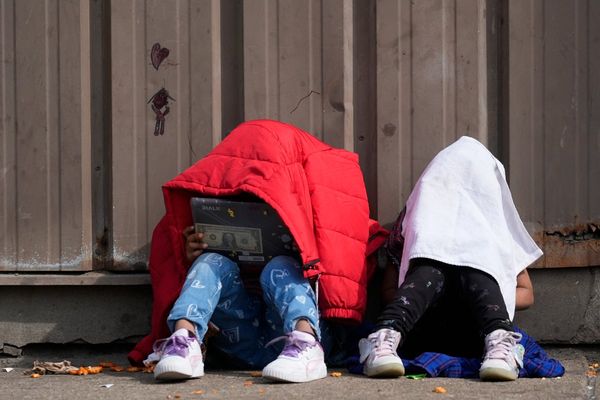More than 100,000 homes in Scotland have nobody living in them – with some lying empty for decades. Campaigners believe getting local authorities to buy the vacant properties could hold the key to easing Scotland’s national housing shortage.
Figures from government body National Records Scotland show 112,300 properties – 4.2 per cent of all dwellings – are unoccupied at any one time. That’s almost one for every 20 Scottish homes.
Of that total, 15,912 have lain empty for between six and 12 months, and 27,584 for more than a year. An estimated 130,000 people in Scotland are homeless or on waiting lists.
But housing campaigners believe the figure could be dramatically reduced if the empty homes were put back into use. They want councils to use compulsory purchase orders to buy and repair the vacant properties.
The Scottish Empty Homes Partnership (SEHP), funded by the Scottish Government and backed by Shelter Scotland, said approximately 43,000 homes are lying empty and, where they are causing a blight on the community, they could be brought back into use this way.
It said homes become empty for a variety of reasons including the owner dying or going into care and legal disputes over ownership.
SEHP’s Shaheena Din said: “They might also need upgrading and the owner can’t afford the cost. Empty, derelict or abandoned homes can cause a blight on the local community and affect the quality of life for their neighbours. Bringing them back into use will, in turn, help to address the housing and homeless emergency.”
The number of long-term empty houses in Scotland is seven per cent higher than in 2019. The cities with the highest number last year were Edinburgh with 6180, Aberdeen with 6006 and Glasgow with 2958.
Last year, SEHP helped get 1152 empty properties back into use. One success was an old police station and house in Langholm in the Borders, which had been empty for 15 years. It has been converted into four flats at affordable rents.
Din added: “Some owners are unwilling to return their home to use, cannot be traced or are difficult to engage with. We believe compulsory purchase orders should be used more widely to prevent homes from being left to deteriorate when Scotland desperately needs more homes.”
In Glasgow, 52 empty homes which have lain empty for up to 15 years have been targeted for compulsory purchases since 2019.
Glasgow City Council said: “Empty homes are not only a wasted resource that could be used to address chronic housing shortages but can be a blight on the community by attracting vandalism.”
It’s thought compulsory purchase orders could be cheaper than building houses, with a £25,000 cost to renovate an empty property compared to £120,000 to build a new home.
Sean Clerkin, of the Scottish Tenants Organisation, said: “We are living in a housing emergency. Purchasing and renovating empty homes would be an effective way of tackling this crisis.”
Nick Harleigh-Bell, of Homeless Action Scotland, said: “Funding councils to take over disused or unoccupied homes and bringing them back into use for the public good is a fair and efficient way of increasing our housing stock for people who desperately need a home to live in.”
The Scottish Government said: “Local councils have broad compulsory purchase powers which can be used for a range of purposes, including restoration of property which may be vacant, derelict or unsafe to bring it back into productive use.”
Homeless mum Tracy has moved into a two-bed house in Glenrothes, which was empty for nearly three years, with her partner and baby. It was bought and renovated by the local YMCA and is the first time the family have had a home of their own.
The couple and their newborn had been living in a damp-ridden, privately let third-floor flat, which was affecting their own health and their baby’s wellbeing. Tracy, who is in her 20s and asked for her full name not to be published, often struggled to get her pram up the stairs.
She says her new home, which also has a garden, has made a huge difference to their lives. The couple’s young child has just joined nursery and is very settled.
Tracy said: “There should be more affordable, decent homes. Everyone should have the opportunity to feel safe.”
Don't miss the latest news from around Scotland and beyond - Sign up to our daily newsletter here .







